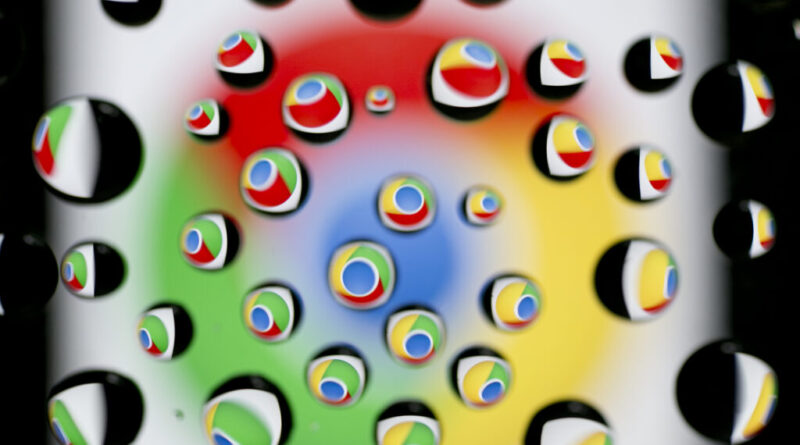Google Avoids Significant Court Penalty
A United States federal judge has ruled that Google is not required to divest its Chrome web browser to address its illegal monopoly in the online search industry. However, the tech giant must take several other actions, such as sharing data with competitors, to promote fair competition.
This ruling on remedies was issued by DC District Court Judge Amit Mehta, who previously determined that Google had violated antitrust laws concerning its search business.
For Google, this outcome is not the worst-case scenario, as evidenced by an 8% rise in the share price of its parent company, Alphabet, following the news. Nevertheless, the ruling could still have substantial repercussions for the tech giant and the broader internet landscape.
What was the case actually about?
The US Department of Justice (DOJ) initiated its antitrust lawsuit against Google in 2020, claiming the company had engaged in exclusive agreements with manufacturers like Apple and Samsung to unfairly stifle competition in the search engine market.
For several years, Google captured approximately 90% of all search queries in the US, employing what the DOJ referred to as “anticompetitive tactics” to uphold and expand its monopolies in both search and search advertising.
In August 2024, Judge Mehta ruled in favor of the DOJ, concluding that Google had sustained an illegal monopoly.
The case focused on Google’s tactics of entering into exclusionary agreements that effectively monopolized the primary channels through which users access online search, setting Google as the default search engine on billions of mobile devices and computers, especially those from Apple.
The remedies – proposed and actual
The DOJ suggested significant measures, including the sale of the Chrome browser and potentially its Android operating system, alongside the sharing of search data. These remedies aimed to curb Google’s monopolistic tendencies in the search market and prevent it from gaining undue advantages in adjacent sectors, particularly artificial intelligence (AI).
Additionally, the DOJ sought to terminate Google’s multibillion-dollar agreements with Apple and other associates.
ADVERTISEMENT
CONTINUE READING BELOW
Judge Mehta’s ruling on remedies did not fully align with the DOJ’s most stringent requests.
Under the remedies implemented, Google is prohibited from entering or maintaining exclusive contracts related to the distribution of Google Search, Chrome, Google Assistant, and the AI-powered Gemini app.
Google is also restricted from making agreements that condition the licensing of any Google application on the distribution or placement of these products, nor can it tie revenue-sharing payments to the maintenance of these products on any device for longer than one year.
Furthermore, Google must grant competitors access to its search results and advertising services at standard rates, enabling them to provide quality search outcomes for their own users while developing their technologies.
However, Google will still be permitted to pay device manufacturers to preload its products, including Google Search and generative AI offerings.
A technical committee will be formed to ensure compliance with the final judgment, which will remain in effect for six years and take effect 60 days after entry. Judge Mehta ordered the parties to convene by September 10 to finalize the judgment.
Following the ruling, Google issued a statement reiterating its disagreement with the initial ruling from August 2024, which it intends to appeal.
Today’s decision acknowledges the significant changes in the industry brought about by AI, which offers consumers many more ways to access information. This reinforces our argument made since the case’s inception in 2020: competition is fierce, and users can easily select the services they prefer.
More cases to come
This ruling promotes competition within the search market while allowing Google to retain its fundamental business structure. The data-sharing requirements could be particularly advantageous for AI competitors that need extensive datasets for model training.
Beyond this search case, Google is also experiencing additional antitrust scrutiny. In April 2025, US District Judge Leonie Brinkema determined that Google had illegally monopolized advertising technology markets. The remedies trial for that case is set to take place later this month.
ADVERTISEMENT:
CONTINUE READING BELOW
William Kovacic, a global competition law professor at George Washington University and a former Federal Trade Commission commissioner, remarked to TechCrunch:
We’ve never encountered a situation where the Department of Justice is pursuing two largely parallel cases concerning substantial alleged misconduct against the same dominant player, with two separate remedy processes moving simultaneously.
However, Google’s competitors argue that the remedies should have been more stringent.
Gabriel Weinberg, the CEO of the search engine rival DuckDuckGo, asserted that Google “will still be empowered to use its monopoly to inhibit competitors, including in AI search.” He also urged Congress to step in to swiftly ensure that Google is compelled to “compete on a level playing field.”
It appears that the DOJ will need to demonstrate misuse of dominance in the AI search arena to secure a remedy that meets DuckDuckGo’s expectations.
The full resolution of these cases may not come until late 2027 or early 2028 since Google plans to appeal both the liability and remedy decisions.![]()
Rob Nicholls, Senior Research Associate in Media and Communications, University of Sydney
This article is republished from The Conversation under a Creative Commons license. Read the original article.

